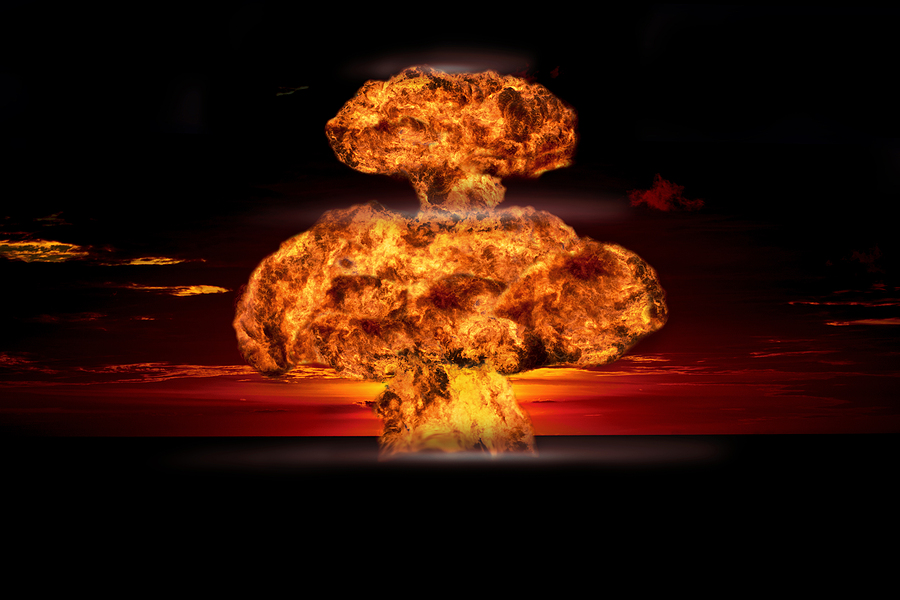
March 28, 2024

Source: Bigstock
I’ve never had much use for diplomats, nor did my father, who called them gigolos and freeloaders living high on the hog off taxpayers like him. “Except for George Kennan,” I used to tell him, and Dad would reluctantly agree. For any of you young whippersnappers unfamiliar with George Kennan, he was the author of America’s Cold War policy of “containment,” in which the U.S. would try to constrain the expansion of communism after World War II without confronting a nuclear Soviet Union directly. In a famous Long Telegram as America’s ambassador to the Soviet Union, Kennan articulated his containment policy in 1946 and in subsequent pseudonymous articles in Foreign Affairs. The idea made him famous among those who wanted peace with the Russian Bear, and even with warmongers who were aware of the price a nuclear war would cost.
George Kennan died at age 105, depriving us of his conclusions about Western involvement in the Russia-Ukraine conflict. Kennan held a fascination for the Russian language and culture, and thought of the modernity of his native America “the world’s spiritual and intellectual dunce.” Kennan’s unorthodox view of the Cold War showed great wisdom and restraint, and if anyone’s opinion is badly needed nowadays, it is his. (Another trait I greatly admired was Kennan’s unrelenting womanizing, as well as his ability to stay happily married for over sixty years.)
How badly needed is a Kennan view regarding Russia today? The answer is: very, very badly. Let’s begin with the worst scenario, a nuclear confrontation. The world is closer to one than it has been in decades, and with it the potential for billions to perish. Just think of it, billions of human beings are roasted in a massive fireball in heat so intense that concrete surfaces explode, metal evaporates, and humans convert into carbon. The heat is millions of degrees hotter than the center of the sun. And yet we keep arming Zelensky, Macron the warrior is thinking of sending troops to fight the Russkies, and Putin sits back knowing full well that if pushed beyond a certain point he will not hesitate to you-know-what. Over on our side I think of the brain-dead race-hustling Kamala; Biden, the elderly used-car salesman; and then of my two children and four grandchildren—and I lose sleep. Our government rushed us into the nuclear age without giving extensive thought to whether this would end human civilization. Until today humanity has been lucky, no one has attempted to nuke an enemy; but now we are pressing our luck.
So here I am, sitting in my Park Avenue flat thinking of what might go up in smoke—Budapest in the spring, lovers on the banks of the Seine, golden skyscrapers on Fifth Avenue, the Lincoln Memorial in D.C.—and blaming poor old Uncle Sam for the carnage in Ukraine instead of the bad old bald guy Putin. Well, although you might not like it, let me try: The good uncle bears significant responsibility for U.S.-Russian relations, now scraping the bottom of Cold War hostility. Deluded by post-Soviet weakness, the good Uncle Sam grew oblivious to Russia’s sense of its historical self: Russia has a deeply ingrained self-perception as a great power, coupled with a great insecurity over its long and mostly indefensible borders. Post–Cold War American administrations aspired to transform Russia into a free-market democracy. What took place, instead, was a kleptocracy under Yeltsin in which some Americans made a bundle until Putin finally put his foot down.
The problem was that George Baker, secretary of state under George Bush—and a decent and honest civil servant—had promised Gorbachev that NATO would not “move one inch eastward” if Gorby played ball while dismantling the Soviet Union. Well, Baker’s successors have managed to move more than an inch eastward and now surround Russia’s western borders.
The other important stumbling block in the Uncle Sam versus the Russian Bear contest is the absolute refusal of American governments to understand or agree to Russia’s aspirations. During the Congress of Vienna in 1815, Tsar Alexander and Russia dominated the proceedings, and only the wiles of Metternich and Talleyrand managed to keep him from turning Poland into a Russian province and along with that large parts of Prussia and the Austro-Hungarian empire.
More than 200 years later, American politicians and diplomats view Russia as a lumbering, way-past-it small power, forgetting that Putin can blow us up probably more so than we can blow him up. Russia’s autocratic regime is natural, Russians have never tasted real democracy, and perhaps that is why they love their country more than we do. But that’s no reason not to enjoy constructive relations with us, nor need we be impeccable foes.
Back in 2008, William Burns wrote to the State Department as ambassador to Moscow that “Ukrainian entry into NATO is the brightest of all redlines for the Russians and for Putin.” What was America’s response? The America that had invaded the Middle East three times in the last thirty years? Total dismissal. Saddam turned out to be a pussy without a nuke; Putin is no pussy and has lotsa nukes. You the readers make up your mind and tell the geniuses in D.C. to stop the bull and tell Zelensky to start talking.